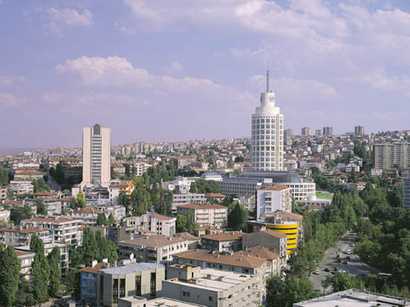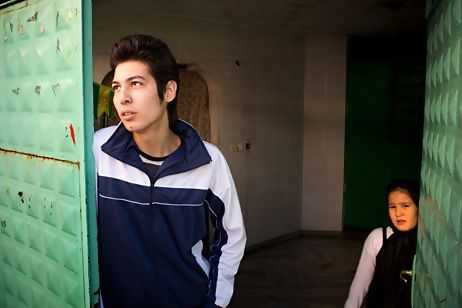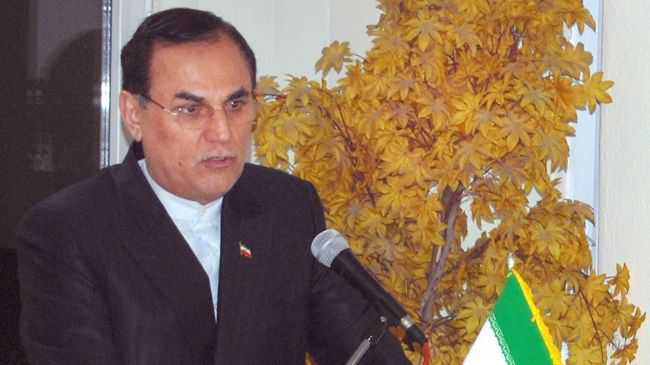An unexpected number of Iranian-financed firms set up shop in Turkey in January, a development likely to cause discomfort in Ankara as Iran looks to develop a network of middlemen in Turkey and elsewhere to sidestep crushing international sanctions meant to halt its nuclear program Today`s Zaman reported.

There were 28 Iranian-funded foreign companies established in Turkey in January, which ranked just behind German investors, according to a report released by the Turkish Union of Chambers and Commodity Exchanges (TOBB) on Friday.
The development continues a trend of an unprecedented number of Iranian-funded firms opening their doors in Turkey since international sanctions against Iran began in earnest two years ago. A previous TOBB report published in September 2012 stated that 651 Iranian-funded foreign companies were established in Turkey in the first nine months of 2012 and a total of 2,140 companies funded by Iran in 2011, other TOBB data show. This was a 40 percent rise over 2010.
In turn, the trend has caused Ankara worry that potentially illegal activities by those Iranian companies will risk an unwanted confrontation between Ankara and its Western allies over US and EU-imposed sanctions, as well as several UN Security Council resolutions. Many of those firms, which are predominately listed as power generation, electronics and communications companies, are suspected by the US and EU of helping the country procure supplies under embargo.
It isn’t the only way that Iran has made Turkey its ally against sanctions, though the US this month moved to block another Turkish lifeline to Iran, the “gold for gas” trade which saw Turkey export gold to Iran in exchange for Iranian natural gas and petrol. The trade saw Turkey export around $6.5 billion in gold to Iran in 2012, a more than tenfold increase over the year before.
But while Turkey has traditionally been defiant about its right to continue that trade, arguing that Iran supplies 30 percent of its daily natural gas supply and it is too large a quantity to fully replace with imports from elsewhere, Ankara is likely to bow to pressure on a new US measure to block sales of precious metals to Iran. The new measure targets Halkbank, which has been used as an intermediary to convert the lira Tehran receives in gas sales into gold accounts. According to Reuters, Iranian couriers are then believed to withdraw gold from those accounts and ship the gold to Iran.
But while highly visible intermediaries like Halkbank can be targeted, the smaller front firms looking to sneak goods and merchandise under the embargo may be much harder to stop. Previous reports by Today’s Zaman have shown that those companies use a number of poorly regulated intermediaries like Iraq and Pakistan to re-route merchandise from Turkey, or use the porous Esendere border crossing in Yüksekova in the southeastern Turkish province of Hakkari.
The TOBB statistics provided by new Iranian firms entering Turkey also suggest that illegal actions may be afoot. A TOBB report in January last year saw 63 Iranian companies register in the month, versus just 36 German companies. Given that Germany’s trade with Turkey is over twice as high for that year, it suggests that many of those companies may indeed be fronts.
Last January’s numbers also suggest that the overall number of Iranian firms registering in Turkey declined over the year, a trend Former Justice and Development Party (AKP) Mardin deputy Cüneyt Yüksel told Today’s Zaman was likely the result of declining confidence and capital among non-front Iranian firms, expecially in the tourism sector.
Nationalist Movement Party (MHP) Antalya Deputy Mehmet Gunal meanwhile told Today’s Zaman that Turkey and Iran have different views on the Syrian issue, a difference which could also be a contributor to the decline in the number of Iranian businesses.
Even if Turkey does crack down on suspicious Iranian firms, there are still likely ways Tehran will be able to ship parts critical for its nuclear program through its borders. This weekend a report by nuclear watchdog, the Institute for Science and International Security, reported that Tehran has used China as a conduit for specialized magnets needed to develop nuclear weapons.
In July of last year Washington took its most notable step to stop front companies from supplying Iran, releasing a list of ships and banks that it said were helping Tehran acquire a nuclear weapon. The US and the EU have worked to freeze financial transactions and to fine companies knowingly doing business with fronts for Iran.
via New Iranian firms in Turkey stir front company worries for Ankara – Trend.Az.




